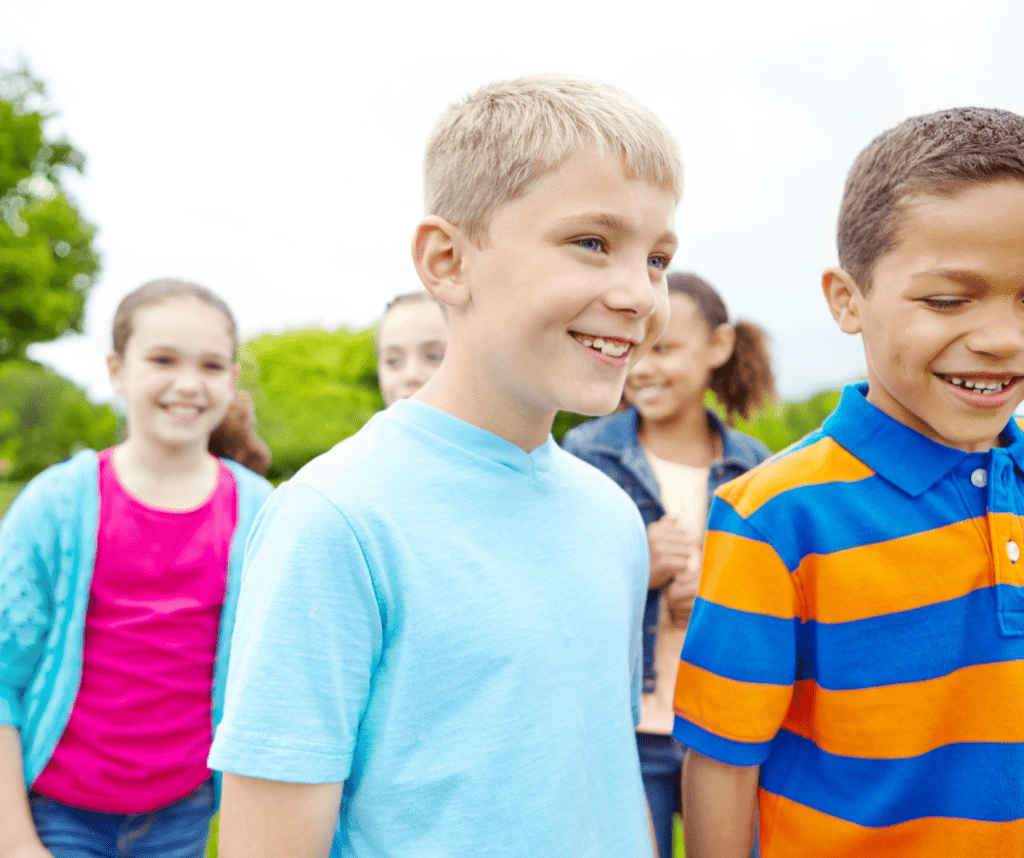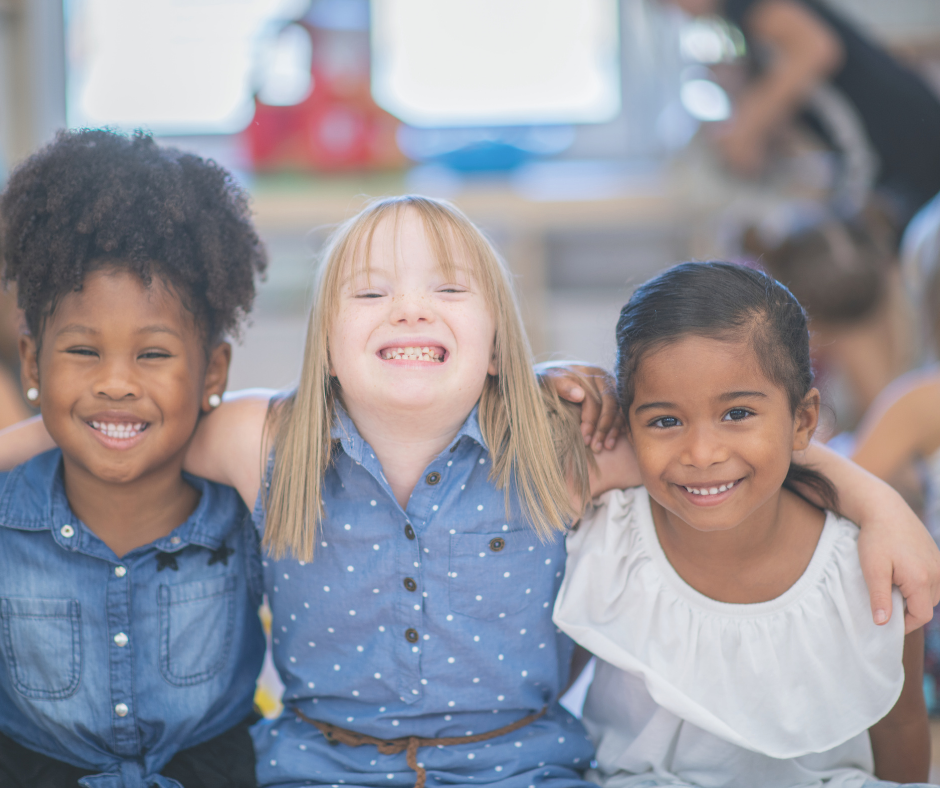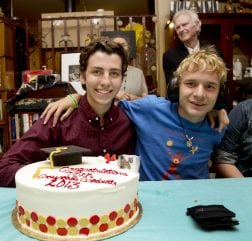Everyone is feeling the effects of COVID-19 and the stay-at-home orders that have now been in place for a year. For most of us, our main sources of socialization have been shut down – schools, work places, public gatherings. Many parents and children report feeling report an increase in anxiety and sadness that may present as an increase in self-isolation and/or acting out behaviors.
Many parents worry that their children have lost opportunities to develop their social skills or regressed in areas of social development, particularly children with developmental disabilities such as autism spectrum disorder (ASD). This article is intended to address some ways in which you can monitor your child’s social skills and learn practical tips to maintain social skills development in the era of COVID-19.

Assessing your child’s motivation for interaction
When monitoring your child’s social development during this pandemic, it is important to not only think about observed social behaviors or skills, but whether motivation for interaction has been sustained. Has your child figured out new and unique ways to connect with peers or other family members, such as Zoom and FaceTime, or started participating in interest chat rooms?
If they are responding to interactions that either you set up for them or they (depending on their age) set up for themselves, their social motivation has been maintained and should generalize back to in-person events when it is safe. If you see that your child is seeking out siblings for interaction or seeking out time with you, they have likely maintained social motivation.
However, if your child has become more withdrawn and shied away from online social events and family gatherings, that’s a red flag that they may be experiencing increased anxiety and/or depression. Addressing these needs through a change in routine at home will be helpful. It is also important to remember that even in this virtual world, therapy is always an option to help your child.
Dissecting the term
When thinking about the term “social skills,” remember that it encompasses a variety of different skills – it’s not just taking part in conversations, making friends or having frequent playdates. Social skills are best defined as everything a person needs to maximize their potential, outside of their academic or intellectual abilities. Social skills are also ever evolving. A socially competent person uses skills (facial expressions, gestures) needed to effectively communicate and understands the need to change or modify their behavior based on feedback.
A socially competent person also understands that they may have different thoughts, opinions and perspectives than other people do. Included within social competency are skills such as emotional regulation, flexibility in thinking, theory of mind (“social thinking”), empathy, problem-solving, independent living skills and executive functioning or organizational skills.
Thus, when we look at the broader concept of social skills, it’s clear that the home environment is filled with opportunities to promote social development. That is, while peer-to-peer interactions are important, they are not the sole way for social skills to develop or improve. In fact, it’s likely that many children have actually gained important social skills in this pandemic, particularly around emotion management — such as adapting to change or managing disappointment.
We have also had to learn how to be flexible and problem-solve when things don’t go as planned. Keep these moments in mind and try to point them out as they are happening.

We have identified several opportunities for continued practice within the home environment:
- Focus on responsibility and independent living or practical skills. For example:
- Practice preparing simple meals, ordering food or learning one’s address and phone number.
- Work together as a family on a project such as cleaning out the garage, completing a jigsaw puzzle or repainting a bedroom.
- Remember that in doing these tasks, you are also addressing flexibility, compromise, negotiation and teamwork – all necessary social skills!
- You can also focus on social-emotional skills, such as recognizing and coping with various feelings. For example:
- Have dinner time conversations about what made everyone happy/sad/hopeful/grateful each day.
- Practice yoga, mindfulness or journaling together.
- Model your feelings and share your own coping strategies for your children. It helps for them to know that you are experiencing some of the same feelings of isolation, anxiety or sadness and to learn how you (or an older sibling) are dealing with it.
- Join your children in screen-time activities and talk about the emotions being displayed by various characters. Have them predict what they think characters may do, or reflect on what made characters react differently to the same situation. Point out positive social skills and unexpected social responses.
Putting rusty skills into practice
It’s important to keep in mind that the current focus is on physical distancing, not social distancing. We encourage you to find ways to have your children engage safely with others.
Find times for virtual hangouts, drive by a friend’s house to wave, schedule an outdoor playdate in which both kids have the same set of materials and are building or creating something simultaneously. Some children may also benefit from a virtual social skills group or extracurricular activity via zoom, such as those offered by The Help Group’s Kids Like Me program.
This has been a stressful and unprecedented time for all of us, but our children have now lived through a moment in history that is unlike any in the modern era. While some children may not have appeared to have made social progress in the ways we expected, they are likely still on even-footing with their peers, who have also been on “Zoom school” and staying at home.
This is a global pandemic and you are not alone. The majority of children have missed similar opportunities for social engagement in the past year, and it’s our expectation that school personnel will bear this in mind when assisting children with adjusting to their new normal.
Plus, our children are highly resilient and while it may feel like they have plateaued or regressed in some areas, they likely have made progress in others.
There finally appears to be a light at the end of this tunnel, and we are hopeful that children will return to school having gained in social understanding, empathy, flexibility and social thinking rather than having lost major ground.
Dr. Laurie Stephens, a developmental psychologist, has worked with children on the autism spectrum for more than 25 years. She is The Help Group’s Senior Director of Autism Programs. Dr. Jamie Barstein, a clinical psychologist with The Help Group, specializes in assessment and treatment of individuals with neurodevelopmental disabilities such as ASD. She assists with development and implementation of clinical programming through The Help Group’s Kids Like Me and the Kaleidoscope program that supports LGBTQ+ youth and young adults.


























